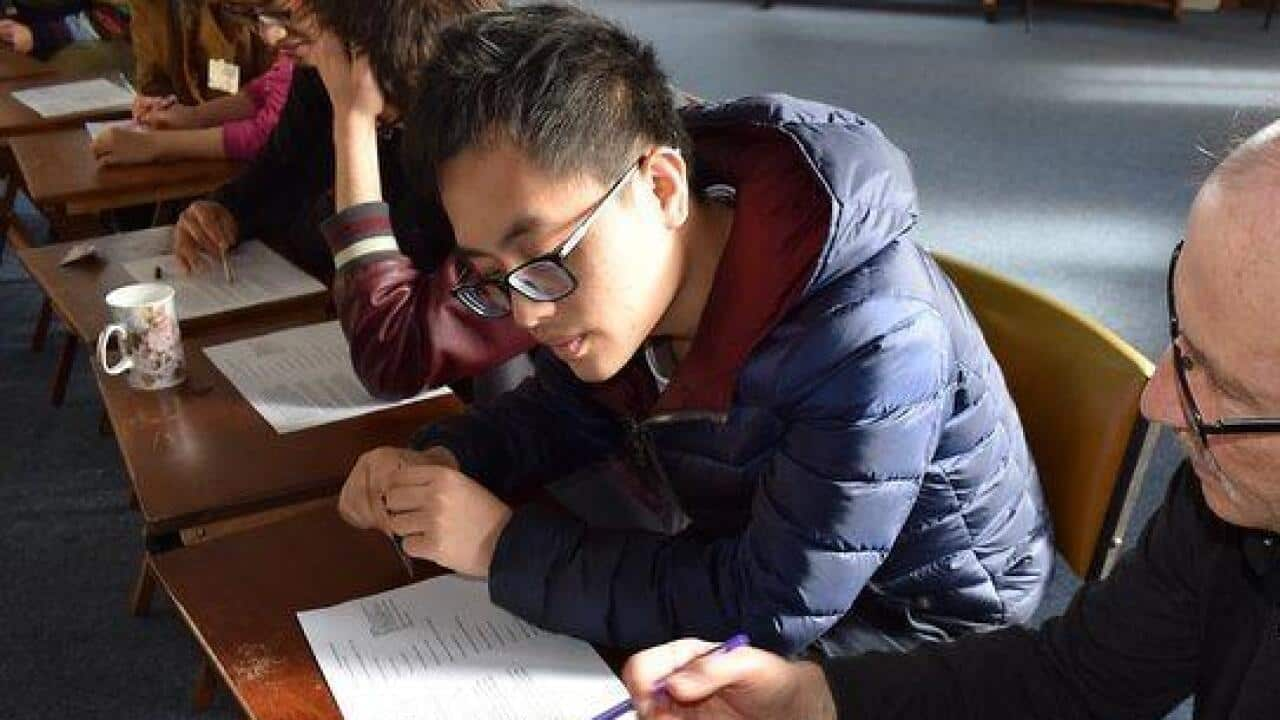It’s hard to feel like you blend into the walls of your own home.
Any night of the week, I’ll be at dinner with my family, eating food in silence while conversation flows around me. Every now and then, someone will offer me an opening, and I’m able to participate for a brief moment before the walls close in again. I basically have the “blank-stare-to-distract-from- my-isolation” down to an art.
My cross-cultural upbringing meant I never got the opportunity to pick up Tagalog or my family’s regional dialect, and now I’m much too old and my brain is much too concrete for me to learn to any whisper of fluency. What’s more, I stand alone as the only member of the family unable to speak or understand our mother tongue.
While I understand and appreciate how lucky I am to be fluent in English, I am constantly confronted with the doors closed off to me because I missed that neurological sweet spot.
My language played an integral role in how I compartmentalised my cultural makeup. Although virtually everyone in my family can speak English well enough for us to maintain relationships, there is something very different between communication and language.
I felt rejected by my culture, so I thought it only fair to reject it back.
I watch my mum talk with my cousins and feel like they share something I could never be privy to. Filipino TV blares through the house in all its un-subtitled glory, and I watch as cultural icons and popular dramas pass before my eyes. So much culture is baked into a language, that a lot of my cultural literacy and connection is fragmented, and just out of reach.
This feeling was reinforced by everyone around me. There seems to be this mutual understanding that if I lacked the language, I had also forgone every other aspect of the culture. I have had relatives gawk in surprise to my palate for Filipino food. There is a very strict, unspoken criteria for what makes someone a part of a certain culture, so lacking in the essential components made me insecure whenever I would attempt to inhabit space as a Filipino. There was a time where my insecurity grew into resentment. I felt rejected by my culture, so I thought it only fair to reject it back. I spent as little time with family as I could, retreating to my room where I could be alone with my thoughts, rather than alone in a crowded room. I threw myself into English, fostering a love for reading and writing which I suspect was partly motivated by a need to overcompensate.
There was a time where my insecurity grew into resentment. I felt rejected by my culture, so I thought it only fair to reject it back. I spent as little time with family as I could, retreating to my room where I could be alone with my thoughts, rather than alone in a crowded room. I threw myself into English, fostering a love for reading and writing which I suspect was partly motivated by a need to overcompensate.

Kim Koelmeyer. Source: Supplied
I know you must be thinking of the obvious solution: to learn the language. Trust me, I’ve tried. But there is something extremely embarrassing to me about learning something which should have been birthright. When my mouth wraps around words I should know, it feels like I’m doing an imitation. When I was a child, I tried to slip Tagalog words into my sentences and got amused laughs in return.
No matter how hard I try, I can never be entirely what my family would expect.
Once, my cousins and I played a game where I would guess the meaning of words. If I got it right, I was praised like a child learning to walk. If I got it wrong, they would laugh. It was all in good fun, but my inability to speak the language became a spectacle, so it became easier to be the ignorant child rather than the try-hard.
All this said, it wasn’t always this way. My mum has told me of a time when I was two, on holiday in the Philippines and speaking fluently. This elusive version of myself who could participate in my family and my culture fully is something I don’t have the luxury of remembering, but knowing there was a time before all of these cultural gymnastics, gives me hope there is a time after.
First generation guilt is a feeling shared by many Australians with migrant backgrounds. No matter how hard I try, I can never be entirely what my family would expect. But I’m working at making peace with the fact that a cross cultural background means some things will get left behind, but it doesn’t make me any less whole.






